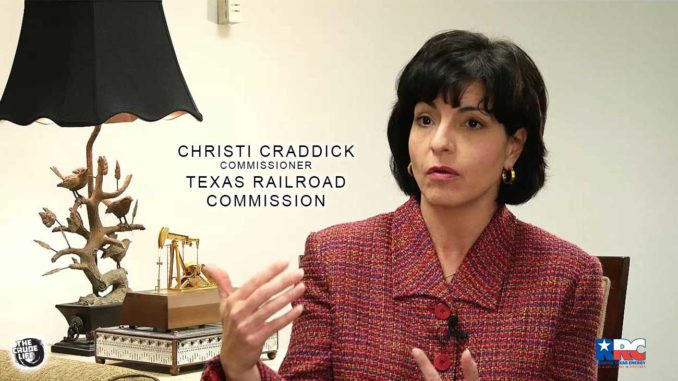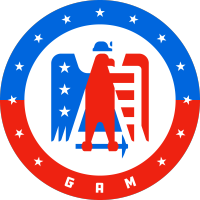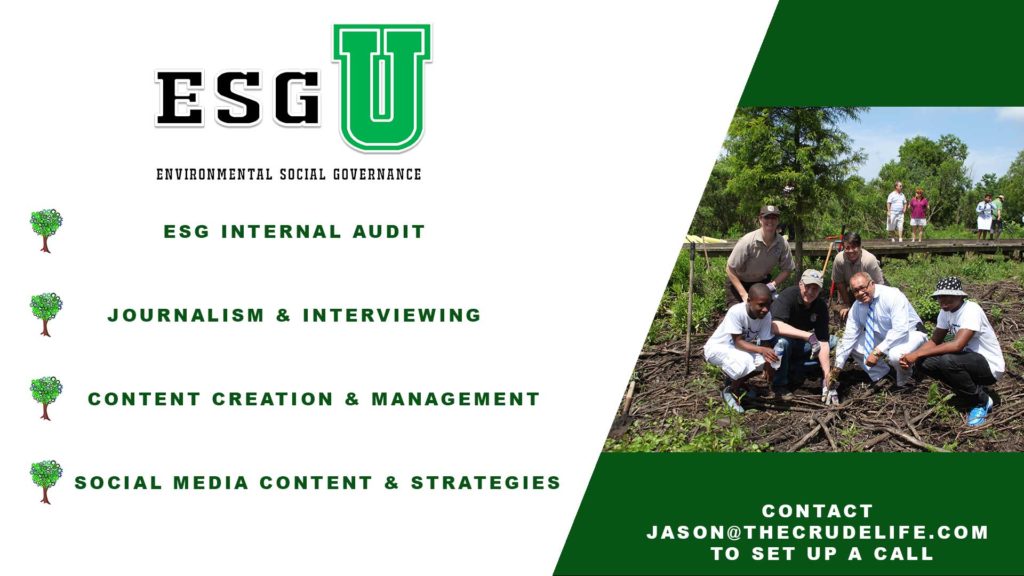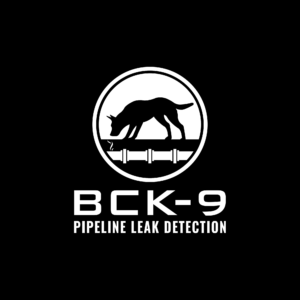

Every March since 1987, Congress and U.S. Presidents have designated March as Women’s History Month. This year, The Crude Life celebrates and honors their accomplishments and contributions in history with interviews and stories that center around women’s experiences in industry.
The Crude Life believes woman are vital in energy. Today more than ever. From a female’s point of view to intuition to specific skill sets, woman are vital in energy.
Today’s women in industry are not only modern-day leaders, but truly are defining history as well.
Everyone at The Crude Life is grateful for all your contributions to industry, to your communities and to our planet.
Commissioner Christi Craddick is one of three commissioners at the Texas Railroad Commission, and she is also the longest serving of the three to this elected position. We were lucky enough to get some time with Commissioner Craddick to recap the last year and catch a glimpse of what she anticipates to come.
–We begin with Chairman Craddick breaking down a little bit of history and information about the Texas Railroad Commission. They are the oldest oil and gas regulators in the world, and they’re based in Texas. They focus on pipelines and pipeline safety, and there are roughly 470,000 miles of interstate and intrastate lines in Texas and roughly another 500,000 miles of gas utilities lines in Texas to maintain. They also do coal, coal mines, lignite mines, and uranium mines; so, needless to say, it’s a big job to maintain safety. They also regulate carbon capturing in Texas oil fields. Production wise, about a 3rd of the country’s oil and a 4th of the country’s gas is coming out of Texas.
“I think we’ve got one of the best agencies in the entire state, and frankly probably [one of] the best agencies is the entire country when you talk about oil and gas regulations.” – Commissioner Christi Craddick
– To prevent waste and to protect the environment are the top two priorities of the agency. Commissioner Craddick talks about the idea that having rules and regulations is one of the best ways to make sure that the practices in the field maintain the safety practices. There are about 150 inspectors for the oil and gas division, approximately 30 people inspecting the coal and coal mines, and around 70 inspectors in the pipeline division and they’re out in the field everyday to help make sure everyone is in compliance with the rules and regulations. The idea isn’t to over-regulate, though; once something is found not in compliance, there is an opportunity to fix the issue before fines and penalties are given. There’s also a great many resources found on the website so that everyone has an opportunity to be in compliance. Everyone does get opportunities to operate within the rules and regulations; but if there’s a refusal to play by the rules, the Texas Railroad Commission will shut the operation down.
– Next we discuss the impacts of climate activism on the Texas oil and gas industry and how it has put a spotlight on flaring in Texas. This has been an on-going challenge that will hopefully continue to see progression. A goal is to build the infrastructure so that flaring won’t be necessary.There is also a desire to update the systems and upgrade the data that is gathered in the field. “There is no magic answer” as Commissioner Craddick says, but the industry is changing and progressing and there will most likely continue to be an on-going conversation on how to work with companies to implement the best practices.
“Flaring is a priority to find out how we do it better and how we do a lot less of it in this state. We’ve talked about it a lot in the last 18 months in Texas.” – Commissioner Craddick
– After going from all-time highs in 2019, then there was the trade dispute in the Middle East and Covid. So, mid-March 2020, there was talk about the possibility of prorationing for the first time since the 1970s. What this would do is nix the free market and make it mandatory for businesses to only produce what was “rationed” to them by the Commission. But the demand had dropped by nearly 100 million barrels per day on top of the closures due to Covid. The conversation went on for roughly two months, and there was an 11 hour hearing last April while people around the world waited to find out what the decision was. Ultimately, the decision was not to proration and to trust in the free market to even itself out.
“We are glad we’re past that conversation today and instead have tried to use other rules and waivers that we’ve been allowed to look at as an agency to try to keep this industry alive during this short period…” – Commission Craddick
– Although we most likely will not see the conversation about prorationing come back, there are other obstacles Commissioner Craddick is looking at having to overcome in the next few months. The Paris Climate Accord, the possibility of shutting down the Keystone XL Pipeline, the journey to getting carbon neutral and the rest of the government regulations that come with the Biden/Harris administration may be the greatest hurdles in the near future. The hope is to use Texas as a model for utilizing each industry in a balance to bring about the best economy rather than choosing to model the strategy off of California.
“We have common sense approaches.. and that’s why our economy continues to grow and people are moving to Texas…” – Commissioner Craddick
– Commissioner Craddick continues to talk about positive hopes for the future based on the current trajectory. She discusses countries like Taiwan that are beginning to make the change to cleaner energy and how the developments made in the United States are helping the world with progressing to cleaner energy. The belief is that more will get done when industry is behind it.
“People who argue that we don’t have clean energy, they haven’t looked at the fact that our methane emissions have gone way down in the last ten years not because of over regulation but because industry’s seen the value and put the technology in place that they need to without being told to… “ – Commissioner Craddick (24:49)
– Some words in closing, Commissioner Craddick talks about some things to keep in mind over the next year. She says to be watching the budget, and understand that the oil and gas industry isn’t going anywhere.There are simply too many things in our lives because of oil and gas whether a person drives or not. Rather than choosing an energy source, continue to have conversations to help everyone move forward positively and in balance.
If you’d like to find out more, be sure to check out these links:
Commissioner Craddick’s Website
Interview and recap of Commissioner Christi Craddick is by The Crude Life Content Correspondent Genneca Houser.
If anyone would like to schedule an interview, meeting or news tip email studio@thecrudelife.com
Industrial Integrity and Energy Ethics are the new entry level expectations in oil and gas, and The Crude Life continues to create original Local, Boots-On-The-Ground Journalism while showcasing other environmentally conscious companies.
Communication is vital in today’s energy extraction and empowerment.
About The Crude Life
The Crude Life produces original content that focuses on industry, the people, energy innovations, community building and it’s proactive culture. Our custom content is non-polarizing, trusted and often news making.
The Crude Life promotes a culture of inclusion and respect through interviews, content creation, live events and partnerships that educate, enrich, and empower people to create a positive social environment for all, regardless of age, race, religion, sexual orientation, or physical or intellectual ability.
Part of our mission is to enable people, companies and communities to affect change, demonstrate their transformative actions and drive energy awareness through storytelling and access to resources.
Sponsors, Music and Other Show Notes

Studio Sponsor: The Industrial Forest
The Industrial Forest is a network of environmentally minded and socially conscious businesses that are using industrial innovations to build a network of sustainable forests across the United States.
Weekly Sponsor: Black Creek K-9 Pipeline Leak Detection
Disabled Veteran Owned Business in Decatur, TX. Servicing the K-9 industry with pipeline leak detection, detection services, dog training & K-9 consulting. Dwayne Farris served in the United States Marine Corps as a Military Police Officer, assigned to be a Military Working Dog Handler. Upon the honorable completion of active duty, he continued as a reservist for the U.S. Marine Corps Military Police Detachment located in Wahpeton, North Dakota as a squad leader. He was later promoted to the rank of Staff Sergeant.
As a civilian contractor, Dwayne operated for various high-profile U.S.-based security companies deployed to support Operation Enduring Freedom and Operation Iraqi Freedom. He served as a Combat Canine Tracking Handler, Trainer, Kennel Master, and Program Manager. His most recent experience was as the field-based Supervisory Subject Matter Expert working for TSA as the Regional Canine Coordinator for Region 5 based in Seattle, WA. In that position, he regionally oversaw all National Explosive Detection Canine Training Program assigned canine teams. For the Pacific Northwest area of operations, he served as a Regional Canine Training Instructor for the NEDCTP. Prior to joining the TSA, Dwayne was a Multi-Purpose Canine Trainer at Joint Base Lewis-McChord, Washington, for a special operations unit training and deploying K-9 teams in support of world-wide missions.

Weekly Sponsor: Great American Mining Co
Great American Mining monetizes wasted, stranded and undervalued gas throughout the oil and gas industry by using it as a power generation source for bitcoin mining. We bring the market and our expertise to the molecule. Our solutions make producers more efficient and profitable while helping to reduce flaring and venting throughout the oil and gas value chain.

Join Podcasters from across the world and all walks of life as they unite to bring civil solutions to life and liberty.

Studio Email and Inbox Sponsor: To Be Announced

Featured Music: Alma Cook
For guest, band or show topic requests, email studio@thecrudelife.com
Spread the word. Support the industry. Share the energy.



